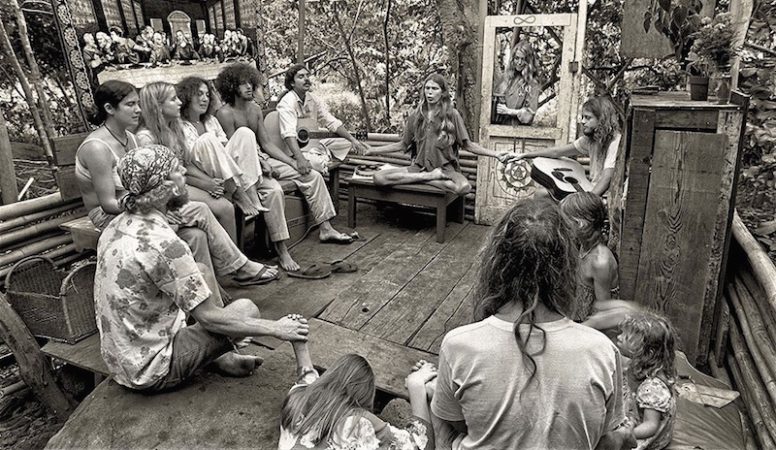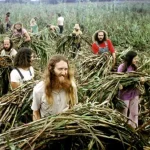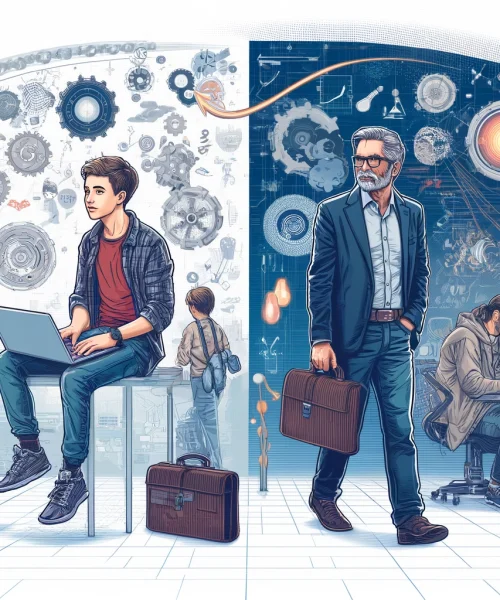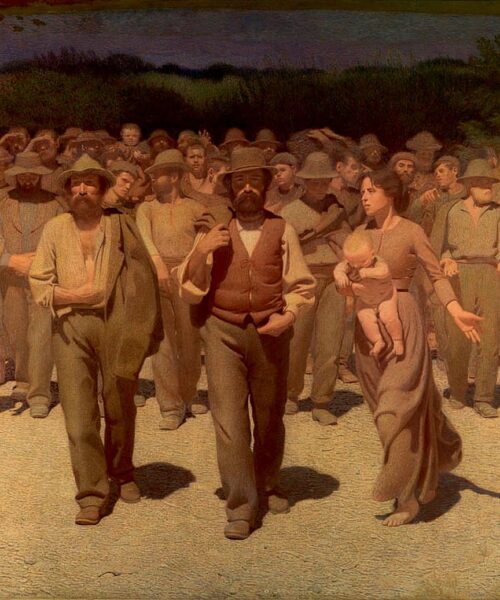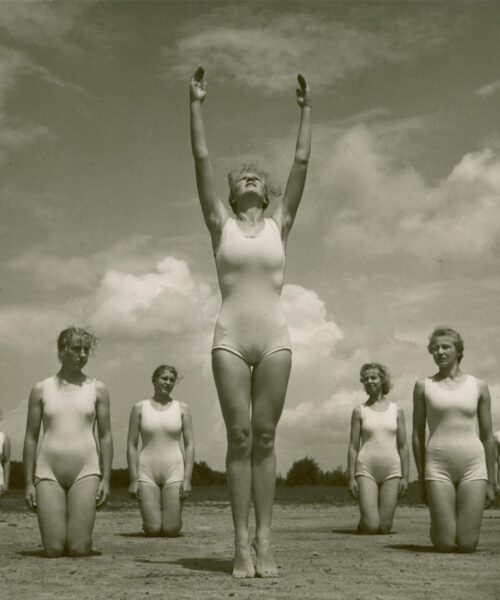In common parlance, the image of flowers in the hair, of free love, and peaceful coexistence endures. The image of an era where social conventions, the institution of marriage, and monogamy were challenged in the name of love without chains, freed from social restrictions. This was another of the central ambitions of hippy communities, who sought to forge a new way of experiencing intimate relationships.
Free love—the idea that each individual could freely share love and intimacy with others, without the obligation of exclusivity or a formalized marital structure—appeared as a liberating principle, a way to express affection and desire without society’s imposed barriers.
However, much like the principle of the abolition of private property, free love also encountered considerable obstacles in practice. The reality of human jealousy, the need for emotional stability, and emotional attachment clashed with the idealism of free love.
In these communities, the absence of clear guidelines on how to handle intimate relationships often led to emotionally complex situations. Jealousy, insecurity, and the pain caused by open and non-exclusive relationships often gave rise to turbulent interpersonal dynamics. Moreover, the issue of consent—a concept perhaps not fully understood or respected as we know it today—often became problematic.
Hippy communities represented an experiment in what a world without the traditional norms of romantic love might look like. Although many of their ideas were radical and avant-garde, the practice of free love raised a host of ethical and emotional issues. The need for stability, emotional security, respect, and consent cannot be overlooked in the context of intimate relationships.
The lesson that emerges from the free love experiment in hippy communities speaks to the complexity of love and human relationships. These cannot be reformed without careful consideration of the emotional needs of the individual and a deep respect for the other. The pursuit of love free from restrictions has revealed that while social constraints can be oppressive, the total absence of limits and rules can lead to confusion and pain.
Love, like humanity, is complex and multifaceted, and any attempt to simplify it or to completely free it from existing structures must take these complexities into account. Free love, as understood in hippy communities, may be viewed as a shattered utopia, but it still offers an opportunity to reflect on our ideas of love and intimacy and how they might evolve in the future.

